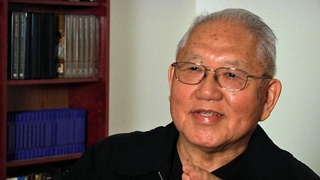Entrevistas
The Power of Language: Japanese Identity Constructed in Santa Cruz, Bolivia (Spanish)
(Spanish) My parents moved to the city. At that point I lost contact with... with the Japanese Community because it was pretty far. It was one hundred kilometers away, and in those times there were no roads, so we lost contact, a bit, with the Japanese Community. But that also made it possible for a Japanese community to form in the city, in Santa Cruz, and my parents saw the need for a Japanese school. So I was one of the first students at that school. Um, as you were saying, the fact that I am able to communicate in my mothers tongue... Because for me it is my mothers tongue, since I only spoke Japanese until I was five or six years old, afterwards I learned Spanish. So, it’s easier for me to communicate my feelings in Japanese. It is also easier for me to understand the feelings of the people with whom I talk, and I believe the person I’m talking to feels this, which makes this type of job much easier. But, for that same reason, there are some disadvantages, because the situation ceases to be protocol. We enter into the realm of feelings, so, things become a bit more complex. But on the positive side, it helps a lot to speak Japanese, and especially, it helps to be Nikkei, because they consider you part of the family.
Data: March 24, 2009
Localização Geográfica: Tokyo, Japan
Entrevistado: Alberto Matsumoto
País: Watase Media Arts Center, Japanese American National Museum
Explore More Videos













Vida escolar no pós-guerra (Inglês)
(n. 1930) Medio japonesa y creció en Japón y los Estados Unidos.

On Challenging Institutions
(1938-2020) Advogada e ativista de direitos civis nipo-americana

Pop and Balls
(1938-2020) Advogada e ativista de direitos civis nipo-americana
